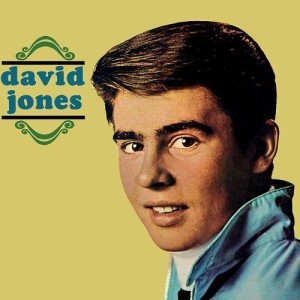Davy Jones “Girl” (1971)
45 years later, of course, we know (a little) better about The Monkees, although the arguments trotted out for their illegitimacy back then are still in play for today’s boy bands and girl groups. The story of The Monkees came to be less about their TV show characters and more about the struggles of the real life band, and by its real life individual members to be able to transcend their TV/pop star packaging and stand artistically with the rock star peers of the era. See a rapt Mickey Dolenz watching Ravi Shankar at the Monterrey Pop Festival. See Michael Nesmith going country-rock and reinventing himself as the godfather of the music video. See Peter Tork bitterly lobbying for the band to be nominated for induction into the Rock ‘n’ Roll Hall of Fame.
The quartet eventually won the right to play their own instruments live and to record their own songs (which, it turned out, were often as good as the Neil Diamond and Boyce & Hart gems they made famous, and which sometimes took some genuinely weird turns); they made a (genuinely weird) movie (Head) with Jack Nicholson. But they were still the Monkees, and despite their best efforts (and those of the folks at Rhino Records, who have packaged and re-packaged the band’s catalog with the meticulousness of a stalker), they’re still regarded by many as a bubblegum boy band prototype. Would we look at the music of Backstreet Boys any differently if they’d soundtracked and starred in a Christopher Nolan movie in 2002? I’m sure some of us would, but they’d still have “I Want It That Way” to live down.
The Monkees “A Little Bit Me, A Little Bit You” (1967)
But my sense of Davy Jones, more than any of his bandmates, is that he didn’t feel like he needed to live down The Monkees. Of the four of them, he’s the only one who actually seemed like a fan of the band. You could argue that it might have been easier for him to take as the group’s heart-throb focal point, but I don’t think that’s right. Those of us who either watched the Monkees on TV during their initial run, or (like me) watched them on reruns in the 80s (the group had a brief sans-Nesmith resurgence mid-decade) had their own favorites (I thought Mickey was the funniest and Michael the cutest). They were all focal points, which is why they made for good sitcom in the first place.
I just think that Davy Jones had a gift for taking the mixed blessings of teen idol stardom with humility, gratitude, a winking sense of humor, and a strong appreciation of the absurd. He was still happily touring the oldies circuit when he died of a heart attack yesterday, playing to a fan base that wasn’t (isn’t) getting any younger, and apparently loving his life – like the lyrics of his 1971 single “Girl”, which might as well be a love song to his audience: “And what you are is all that I want for me, and it’s good to feel that way, girl.” In this sense, he truly invented the notion of the well-adjusted, non-pathetic, happily middle-aged-and-aging teen idol. Justin Bieber: take note, son.
Davy Jones “Girl” (1995)

